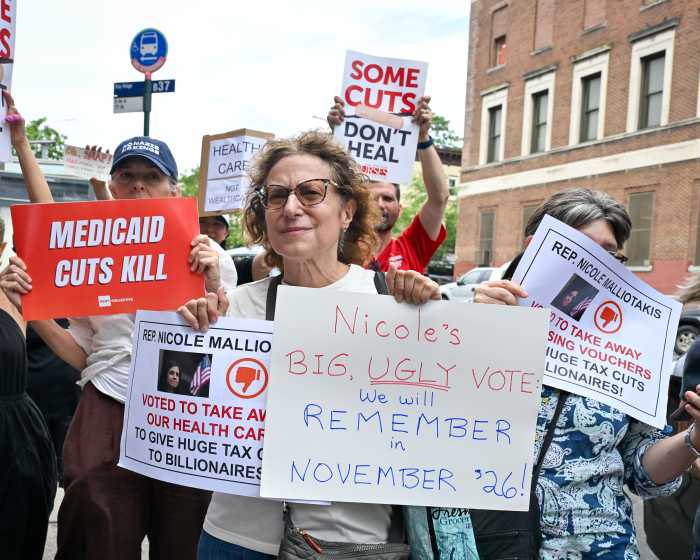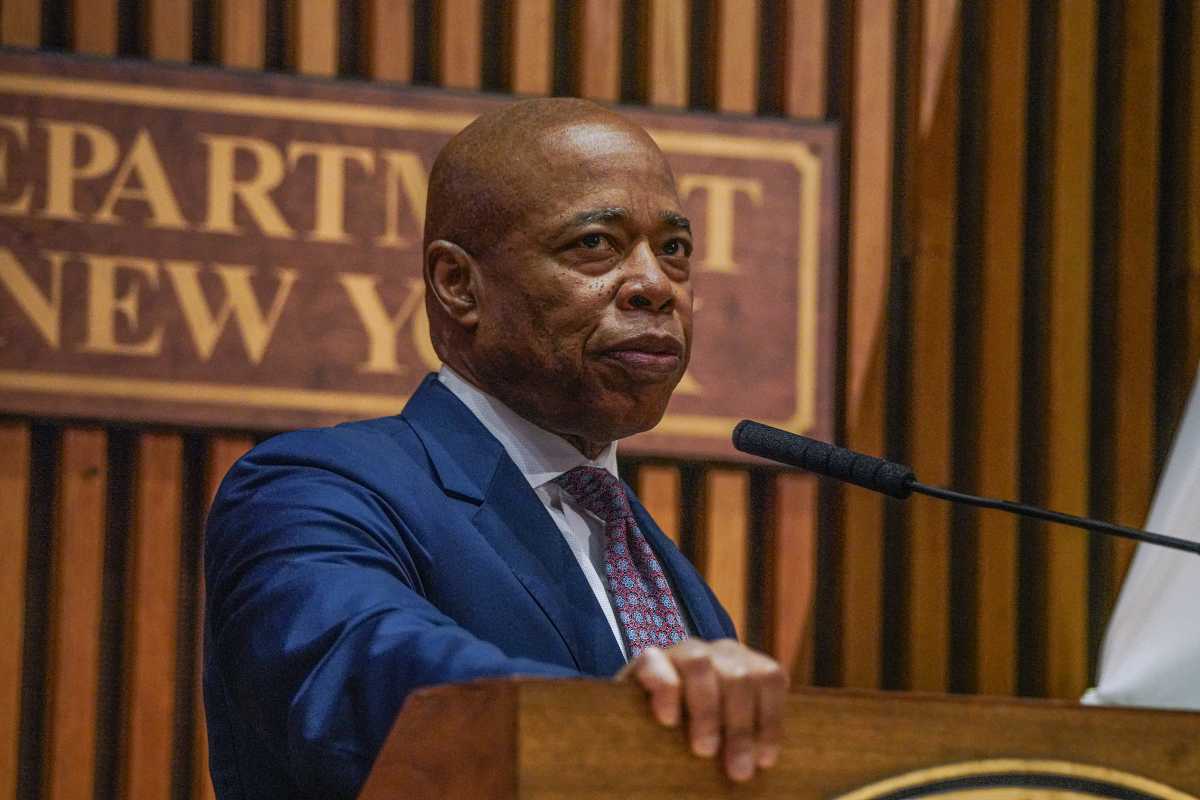When she first took office in January 2022, Council Member Jennifer Gutiérrez learned that her district had a particularly high rate of residential fires. Nine months later, that statistic hit a little closer to home when her chief of staff was displaced by an apartment fire.
On Thursday, Gutiérrez introduced four bills intended to protect tenants and streamline the process of navigating life after a fire or natural disaster.
The Back Home Package, sponsored by Gutiérrez and Queens Council Member Shekar Krishnan, includes measures that would increase transparency and communication by city agencies, incentivise landlords to finish repairs quickly, and hold both landlords and the city to account.
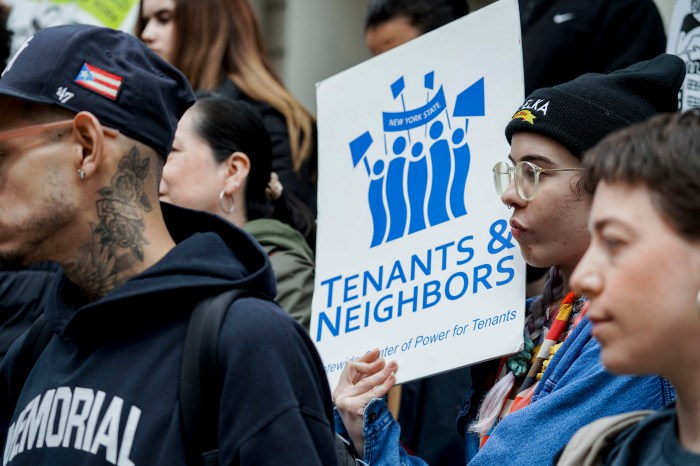
“Nothing hits closer to home than issues of housing, and the devastation that displaced tenants experience is compounded by gaps in the City’s support system,” Gutiérrez said at a rally outside City Hall on Thursday. “These bills seek to address hardships holistically, providing both information for tenants, and pathways forward for landlords to repair homes.”
The first bill, Intro. 749, would create a new Office of Residential Displacement Remediation — a centralized hub to displaced tenants. The office would provide tenants and landlords with up-to-date information about the activities of various city agencies — and monitor those agencies to ensure they were following through with inspections and other post-disaster protocol.
A central tenet of that office, Gutiérrez said, would be an online portal that would ease communication between tenants, landlords, and city agencies.
Back in January, after a five-alarm fire tore through three apartment buildings in her district, Gutiérrez said one building owner who wanted to start repairs turned to her office for help as they struggled to get in touch with the Department of Buildings and the Department of Environmental Protection.
“There’s no central place for them, as a landlord, to go and say ‘Hey, I want to get started on work, what can I do, how can I get the permits,’” she said.
Intro. 750, nicknamed “Preserving Homes,” addresses multiple issues around post-fire building repairs and accountability, explained Anna Bessendorf, Gutiérrez’s chief of staff who suffered a fire herself.
The bill would require building owners to resolve DOB violations within 30 days of receiving them — and instructs the DOB to keep track of how long those repairs take.
“[It is] creating more visibility around how repairs are done or not done in different units,” Bessendorf said. “The bill requires DOB to report on the length of time it takes for landlords to complete repairs, what’s going on in those instances where they’re not, and how many units go without repairs for more than six months.”
Last summer, a group of Flatbush tenants rallied against their landlord eight months after a fire tore through the building, leaving a number of units uninhabitable. Tenants said their apartments were still not fixed — and they hadn’t been allowed in to retrieve their belongings.
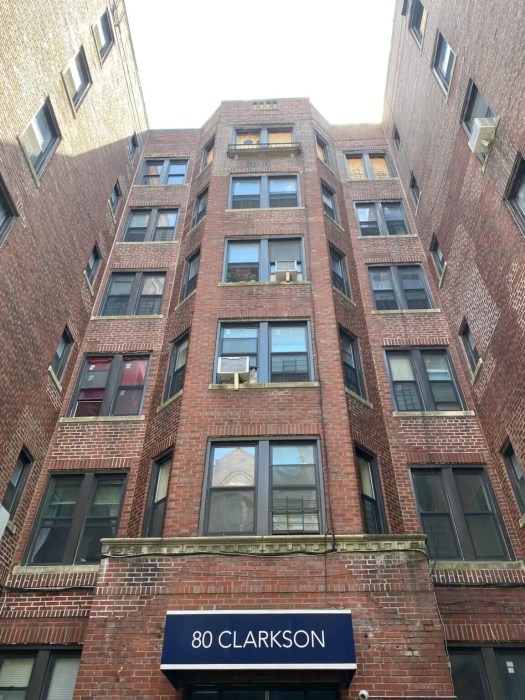
It would also force the city to take a closer look at demolition applications, essentially to ensure building owners looking to knock down their fire-damaged buildings are not unlawfully depriving their tenants of a place to live. If passed, Intro. 750 would prevent demolition for buildings with outstanding DOB violations.
Gutiérrez’s third bill, Intro. 751, would require the FDNY and other city agencies to compile a fire response guide to be distributed by firefighters on the scene in the immediate aftermath of a residential fire. The bill builds upon a similar response guide Gutiérrez’s office developed last year, inspired by Bessendorf’s experience navigating city services after being displaced.
The guide explains what will — and should — happen after a residential fire, and provides basic contact information for various city agencies and the American Red Cross, which often provides emergency shelters to fire victims.
It’s not the be-all, end-all, Gutiérrez said, but it gives people suddenly facing an immense hardship a place to start. Constituents who have dealt with fires have told her office the FDNY is one of the most helpful city agencies — but they’re only on the scene for a short time.
“The idea of this fire guide … is that it’s handed to them by this very trusted voice so they have a little bit of orientation,” she said.
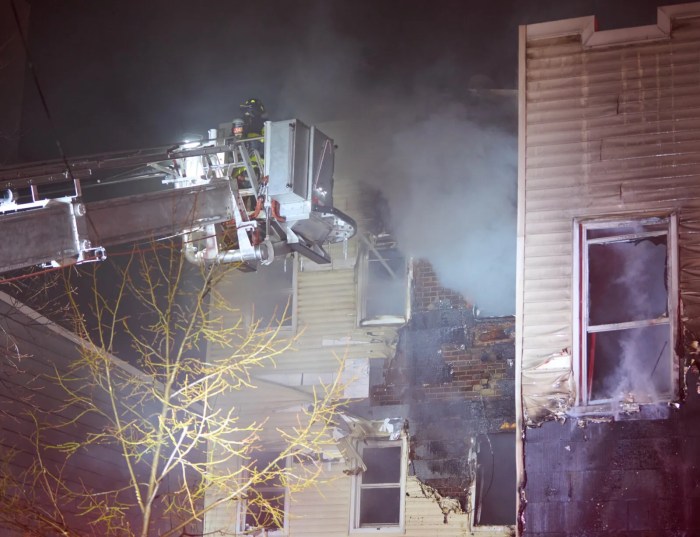
The Council Member plans to introduce one more bill in the relatively near future — a measure that would explore the possibility of low-cost, city-run renters insurance. Many tenants don’t have renter’s insurance, largely because of the cost, Gutiérrez said – but, after a fire, they’re left with few options for replacing their belongings and finding a new place to live.
Finally, Res. 207 calls upon the state legislature to create and pass legislation that would put a three-month cap on how long landlords can loss-of-rent insurance payments without doing meaningful repairs on a damaged, empty unit.
That type of legislation — which cannot be created on a city level — would incentivize landlords to make repairs quickly to get tenants back in.
Bessendorf said that she was displaced from her apartment for six months after the fire – even though the repairs only took a collective two weeks.
As the months dragged on, Bessendorf stayed with friends, family, and elsewhere in over a dozen different places. She couldn’t spring for a sublet, she said, because as soon as the repairs were done, she knew her landlord would demand she move back in immediately – or else forfeit her lease.
“The fire is kind of the big splashy thing that is visible, that everyone sees, but then what happens afterward — the displacement, the extended period where folks don’t know how to get back to their homes,” Bessendorf said. “That’s the piece that can stretch on for much longer.”
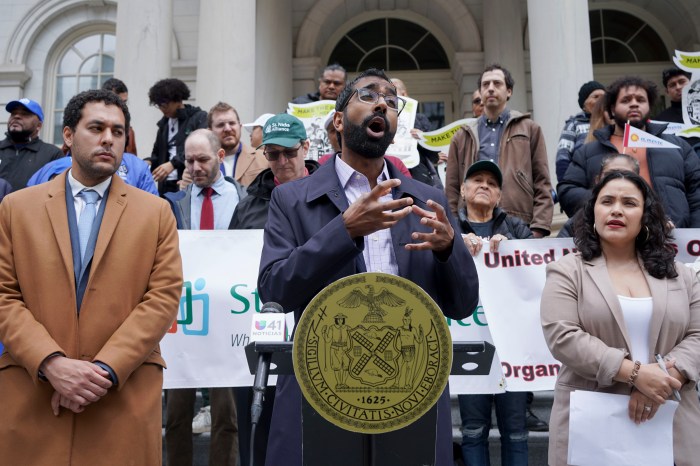
Gutiérrez’s bills are bundled with three pieces of legislation previously introduced by Krishnan — Intro. 607, which requires the Department of Housing Preservation and Development to house displaced tenants in shelters near their home, Intro. 608, which directs HPD to send relocation specialists to aide tenants when a vacate order is issued on their building, and Intro. 609, which requires HPD to report the use of the special repair fund — which is funded by housing code violations.
His bills “speak to the realities” faced by tenants, Gutiérrez said, and the idea behind the entire Back Home Package is to get tenants safely back into their homes as quickly as possible.
“As a former housing attorney, I’ve represented tenants against the worst forms of landlord harassment,” Krishnan said in a statement. “I’ve seen landlords deliberately plan demolition projects in occupied units, inviting vacate orders from the City to illegally kick out rent-stabilized tenants and raise rents. I’ve seen landlords purposely prolong repairs from fires or other emergencies until displaced tenants give up on any hope of returning to their homes. This legislation will ensure our government is protecting tenants and keeping them in their homes, not aiding in their illegal eviction.”



